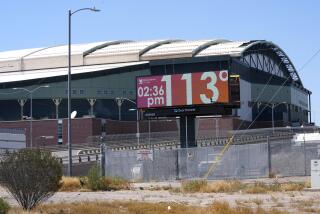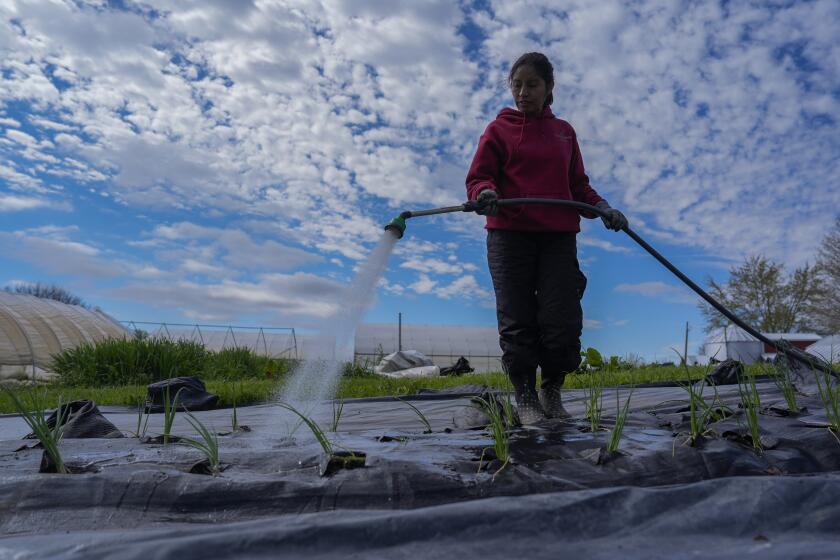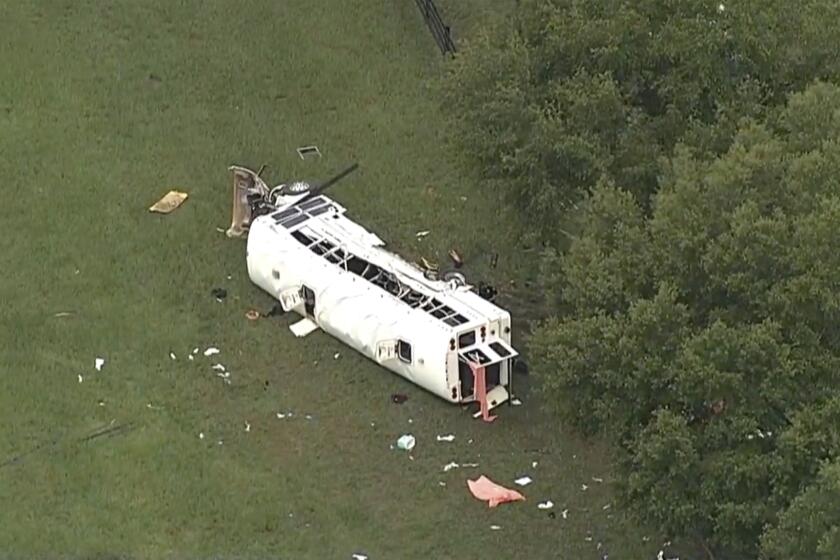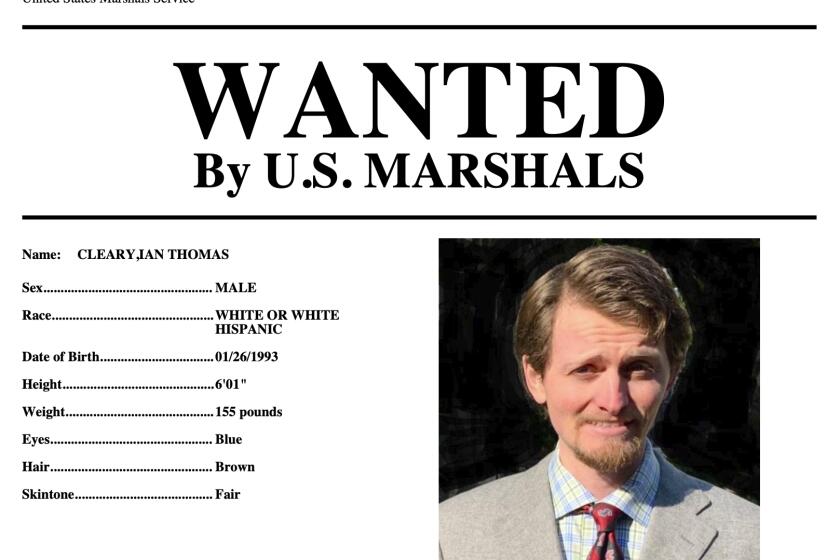Market Focus : Portugal at Sea Over Rulings That Threaten Fishing Industry : ‘There’s hardly anywhere left for our boats to fish,’ they protest. Hundreds of boats have left service.
With the wry smile of an old sea dog, Jose Ramalheira recalls the long-gone days of adventure when he sailed in Portugal’s White Fleet of nearly 100 mainly wooden fishing boats in the dangerous but rich Atlantic waters off North America.
In the white-haired sailor’s heyday, captains who brought their vessels back loaded to the gunwales with cod were treated to the public adulation reserved today for soccer stars.
Now all that has changed. Portugal’s oceangoing fishing fleet, deprived of its traditional fishing grounds by treaties and regulations, is in decline, some say terminally. Working with outdated equipment closer to home, coastal fishermen here fear the might of neighboring Spain’s armada, the largest in the European Union.
New EU regulations and cheaper, frozen fish sold by their Iberian cousins sometimes mean once-proud Portuguese fishermen are mothballing their boats or dumping their catches back into the sea.
Portugal, with a 525-mile-long coastline, for centuries depended on seafaring to survive. Its pioneering navigators began charting the Atlantic before Christopher Columbus was born. The sea, its conquest and the harvesting of its fish have become cornerstones of Portugal’s traditions.
“We’ve fished those North Atlantic waters for 400 years,” said 67-year-old Ramalheira at his home in this small northern fishing town. “For centuries our boats would sail away; some would come back, others wouldn’t.”
The captain, who retired in 1988, first took to the sea after World War II when 90% of Portugal’s fishing fleet was still made up of wooden boats. By the mid-1950s, most of the wooden vessels had been replaced by iron ships. They sailed about 60 to 80 at a time with the Gil Eanes, a ship carrying supplies, surgeons and even a chaplain.
“The world of the captains in those days was like the world of soccer stars today, a world of rising and falling stars,” Ramalheira said. “A successful individual would be admired, even envied, as if he had entered Olympus like a god.”
He recalled how fishermen would vie with each other to set records: who could stay at sea longest, who could bring home the most bacalao--dried, salted codfish. Over the centuries, bacalao became Portugal’s national dish and lately the country’s second most expensive import category after oil.
*
But then fishing disputes between the United States and South American nations and between Britain and Iceland prompted greater protection of national territorial waters. Canada and Iceland have virtually closed their seas to Portuguese ships to allow codfish stocks to replenish. And the Gil Eanes is rusting away.
“There’s hardly anywhere left for our boats to fish,” said Helder Luzio of TBC, a bacalao processing firm near Ilhavo. At TBC’s quayside, a woman was still spreading out salted cod in the sun to dry, but the vessels unloading are now more likely to be refrigerator ships than trawlers.
Portuguese ate 105,000 tons of bacalao last year, but caught only 16,000 tons of it themselves.
Of the 100 or so trawlers Portugal had registered before joining the then-European Community in 1986, 16 are left. TBC buys most of its cod--known as the Portuguese mother’s “faithful friend” because it is inexpensive and can be used in a reputed 1,002 recipes--from Norwegian fishermen.
Under a recent deal between the EU and Norway, Portuguese and Spanish fishermen, whose fishing activities off Norway are strictly limited, should be able to catch an extra 5,000 tons of cod a year there if the Scandinavian nation joins the EU in 1995 as expected.
But fishermen predict that will not be enough to reverse the decline of Portugal’s ailing fleet. “Our fleet has its days numbered,” Ramalheira said. “Before (the year) 2000, we’ll probably have no more trawlers left fishing.”
“This is not some sort of miracle that is going to save our long-range fleet,” agreed Jorge Beirao Reis, president of the Industrial Fishermen’s Assn.
Closer to home, Portugal’s coastal fishermen face different problems, but the results are similar. The EU policy of streamlining its members’ fishing fleets has brought about $408 million of Brussels-regulated investment to Portugal’s fishing industry over the past seven years.
But much of the cash has been used to slash fleet strength. More than 400 Portuguese fishing boats have been decommissioned since 1986, including 166 in 1992.
*
There are still about 34,000 registered fishermen in 125 communities along the coast, many of them working part time to supplement income from farming or other jobs. Eighty-six percent of the 14,000 registered boats are small (under 29 feet long) and underpowered, according to a report by the Portuguese Ministry of the Sea. The prows of the brightly colored small boats still are painted with eyes to ward off danger at sea.
But their main fear is competition from Spain. Last year, Portuguese boats threw their catches back into the sea in a series of protests against what they claimed were price-dumping practices by the Spanish fishing fleet, which is more modern and, with more than 20,000 vessels, the EU’s largest.
Since the advent of the single European market last year, dozens of small, neighborhood deep-freeze stores have sprung up in Lisbon selling mainly Spanish frozen fish at lower prices than fresh fish at the riverside ribeira market.
“The problem is not competition, but unfair competition,” Sea Ministry spokesman Manuel Janes said. “There have been imports of substandard fish placed on the market at unrealistic prices.”
Janes added that Portugal had succeeded, in negotiations with the EU, in preventing a full opening of its territorial waters to the Spanish fleet in 1996.
That was when the last fishing barriers were supposed to be dropped under the two countries’ EU membership deals.
Reeling In Less Portugal’s annual fish catch (international waters, in tons)
1986: 159,798
1988: 106,994
1992: 66,408 Fishing fleet (tonnage)
1986: 209,193
1988: 202,599
1992: 167,765 Source: Ministry of the Sea, Portugal
More to Read
Start your day right
Sign up for Essential California for news, features and recommendations from the L.A. Times and beyond in your inbox six days a week.
You may occasionally receive promotional content from the Los Angeles Times.






